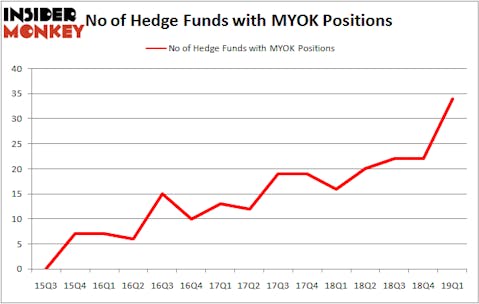It seems that the masses and most of the financial media hate hedge funds and what they do, but why is this hatred of hedge funds so prominent? At the end of the day, these asset management firms do not gamble the hard-earned money of the people who are on the edge of poverty. Truth be told, most hedge fund managers and other smaller players within this industry are very smart and skilled investors. Of course, they may also make wrong bets in some instances, but no one knows what the future holds and how market participants will react to the bountiful news that floods in each day. The Standard and Poor’s 500 Index returned approximately 12.1% in the first 5 months of this year (through May 30th). Conversely, hedge funds’ top 20 large-cap stock picks generated a return of 18.7% during the same 5-month period, with the majority of these stock picks outperforming the broader market benchmark. Coincidence? It might happen to be so, but it is unlikely. Our research covering the last 18 years indicates that hedge funds’ stock picks generate superior risk-adjusted returns. That’s why we believe it isn’t a waste of time to check out hedge fund sentiment before you invest in a stock like MyoKardia, Inc. (NASDAQ:MYOK).
MyoKardia, Inc. (NASDAQ:MYOK) has seen an increase in enthusiasm from smart money of late. MYOK was in 34 hedge funds’ portfolios at the end of the first quarter of 2019. There were 22 hedge funds in our database with MYOK positions at the end of the previous quarter. Our calculations also showed that MYOK isn’t among the 30 most popular stocks among hedge funds.
In the financial world there are a large number of tools investors have at their disposal to grade stocks. A pair of the most under-the-radar tools are hedge fund and insider trading indicators. We have shown that, historically, those who follow the top picks of the best fund managers can outperform the broader indices by a solid amount. Insider Monkey’s flagship best performing hedge funds strategy returned 25.8% year to date (through May 30th) and outperformed the market even though it draws its stock picks among small-cap stocks. This strategy also outperformed the market by 40 percentage points since its inception (see the details here). That’s why we believe hedge fund sentiment is a useful indicator that investors should pay attention to.

Let’s view the fresh hedge fund action encompassing MyoKardia, Inc. (NASDAQ:MYOK).
What have hedge funds been doing with MyoKardia, Inc. (NASDAQ:MYOK)?
At Q1’s end, a total of 34 of the hedge funds tracked by Insider Monkey held long positions in this stock, a change of 55% from the previous quarter. Below, you can check out the change in hedge fund sentiment towards MYOK over the last 15 quarters. So, let’s check out which hedge funds were among the top holders of the stock and which hedge funds were making big moves.

Of the funds tracked by Insider Monkey, Farallon Capital, managed, holds the biggest position in MyoKardia, Inc. (NASDAQ:MYOK). Farallon Capital has a $101.4 million position in the stock, comprising 0.8% of its 13F portfolio. The second largest stake is held by Partner Fund Management, led by Christopher James, holding a $83.3 million position; the fund has 1.8% of its 13F portfolio invested in the stock. Other members of the smart money that are bullish consist of Eli Casdin’s Casdin Capital, Julian Baker and Felix Baker’s Baker Bros. Advisors and Behzad Aghazadeh’s venBio Select Advisor.
Consequently, key money managers were leading the bulls’ herd. venBio Select Advisor, managed by Behzad Aghazadeh, established the largest position in MyoKardia, Inc. (NASDAQ:MYOK). venBio Select Advisor had $52 million invested in the company at the end of the quarter. Arthur B Cohen and Joseph Healey’s Healthcor Management LP also made a $38 million investment in the stock during the quarter. The other funds with new positions in the stock are Paul Marshall and Ian Wace’s Marshall Wace LLP, Jonathan Barrett and Paul Segal’s Luminus Management, and Jim Simons’s Renaissance Technologies.
Let’s also examine hedge fund activity in other stocks similar to MyoKardia, Inc. (NASDAQ:MYOK). These stocks are Ironwood Pharmaceuticals, Inc. (NASDAQ:IRWD), Jack in the Box Inc. (NASDAQ:JACK), Inogen Inc (NASDAQ:INGN), and TransAlta Corporation (NYSE:TAC). All of these stocks’ market caps are closest to MYOK’s market cap.
| Ticker | No of HFs with positions | Total Value of HF Positions (x1000) | Change in HF Position |
|---|---|---|---|
| IRWD | 23 | 421368 | 6 |
| JACK | 36 | 645430 | 7 |
| INGN | 17 | 136102 | -8 |
| TAC | 11 | 29092 | 2 |
| Average | 21.75 | 307998 | 1.75 |
View table here if you experience formatting issues.
As you can see these stocks had an average of 21.75 hedge funds with bullish positions and the average amount invested in these stocks was $308 million. That figure was $784 million in MYOK’s case. Jack in the Box Inc. (NASDAQ:JACK) is the most popular stock in this table. On the other hand TransAlta Corporation (NYSE:TAC) is the least popular one with only 11 bullish hedge fund positions. MyoKardia, Inc. (NASDAQ:MYOK) is not the most popular stock in this group but hedge fund interest is still above average. This is a slightly positive signal but we’d rather spend our time researching stocks that hedge funds are piling on. Our calculations showed that top 20 most popular stocks among hedge funds returned 1.9% in Q2 through May 30th and outperformed the S&P 500 ETF (SPY) by more than 3 percentage points. Unfortunately MYOK wasn’t nearly as popular as these 20 stocks and hedge funds that were betting on MYOK were disappointed as the stock returned -8.8% during the same period and underperformed the market. If you are interested in investing in large cap stocks with huge upside potential, you should check out the top 20 most popular stocks among hedge funds as 13 of these stocks already outperformed the market so far in Q2.
Disclosure: None. This article was originally published at Insider Monkey.





